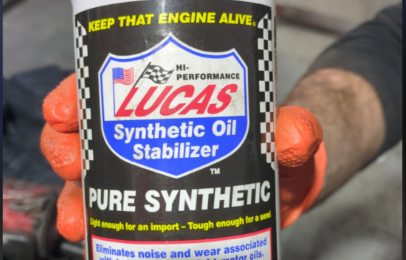Lucas Synthetic Oil Stabilizer Review: Miracle Fix or Engine Myth? The Truth You Need to Know
When it comes to engine maintenance, few products are as controversial as Lucas Synthetic Oil Stabilizer. Promoted as a panacea for reducing engine wear, quieting noise and prolonging oil life, this oil additive has gained a cult following — and plenty of critics. So should you use Lucas Engine Oil Stop Leak in you vehicle, or is it better off staying on the shelf?
We delved into real-world feedback from mechanics and car enthusiasts on Reddit’s r/MechanicAdvice, to give you an unfiltered, no-nonsense review. It does not matter whether you own an aging BMW, a sedan for everyday use, or even just a weekend getaway vehicle – reading this article can help you to make a well informed decision.
What is Lucas Synthetic Oil Stabilizer?
Lucas Synthetic Oil Stabilizer is designed to be mixed with your existing engine oil to:
- Reduce friction and wear
- Quiet engine noise, especially during cold starts
- Improve oil pressure and viscosity stability
- Extend the life of engine components
It promises to work in any engine, from high-performance sports cars to high-mileage vehicles.
Why Do Some Mechanics Recommend It?
In the Reddit post we were reading, one of the reasons was to reduce a slight ticking sound that one mechanic heard in a BMW N47 (specifically the 2.0l version) diesel engine until it warmed up a little (i.e. low rpm when you start the car up when it’s cold). This little bit of noise, typical of older engines or engines with a few worn parts, can sometimes be mitigated by oil thickening — something that Lucas Oil and friends are known to do.
Why Many Mechanics Say “No” to Lucas Oil Stabilizer
On the flip side, many seasoned mechanics on Reddit were quick to label Lucas Oil Stabilizer as unnecessary at best, harmful at worst. Here’s why:
🚫 It Can Dilute Your Oil’s Additive Package
Modern oils, especially full synthetics, are precisely engineered with specific additive blends. Adding an aftermarket product like Lucas can dilute or interfere with these carefully balanced formulas.
🚫 Thicker Isn’t Always Better
The idea that thicker oil provides better protection is outdated. Today’s engines are designed for specific oil viscosities (like 0W-20 or 5W-30). Using a thicker oil—or thickening it with an additive—can:
- Decrease fuel efficiency
- Harm engine internals
- Make cold starts worse
As one Redditor put it:
“If you want thicker oil, just use a higher viscosity oil. There’s no need for this ‘honey in a bottle’.”
Real-World Experiences: The Good, The Bad, and The Useless
Positive Experiences:
- Some users with very high mileage engines or engines with minor oil consumption reported temporary improvements in noise or reduced oil burning.
- A few mechanics who’ve used Lucas for decades on older engines claim it helps prolong engine life when used sparingly.
Negative Experiences:
- Many report no measurable benefit when using quality synthetic oil.
- Some claim it’s only useful as a temporary fix to hide problems (e.g., for selling a car).
- Concerns about clogging tiny oil passages in modern engines were raised.
The Bottom Line: Should You Use Lucas Synthetic Oil Stabilizer?
✔ When It Might Help:
- Older engines with worn seals or minor oil consumption.
- Engines that develop noise when cold and switching to higher viscosity oil is not an option.
- As a last-resort temporary fix before a major repair.
✘ When You Should Avoid It:
- Modern engines using high-quality full synthetic oils (like BMW, Honda, Toyota, etc.).
- Engines still under warranty—this additive could void it.
- If you care about fuel economy and long-term reliability.
What’s the Better Alternative?
🔧 Instead of relying on oil additives, most mechanics recommend:
- Using a high-quality synthetic oil (brands like Mobil 1, Castrol Edge, Liqui Moly) that meets or exceeds your car’s specifications.
- If you’re concerned about noise or wear, consider:
- Liqui Moly Cera Tec (for ceramic protection)
- Moving to a slightly higher viscosity oil (e.g., from 0W-20 to 5W-30) where manufacturer-approved.
Final Verdict: Lucas Synthetic Oil Stabilizer—Hype or Help?
Lucas Synthetic Oil Stabilizer might offer temporary relief in very specific, high-mileage situations. However, for the majority of modern vehicles, the best protection comes from using the correct grade of quality synthetic oil—without additives.
When in doubt, trust your owner’s manual and a trusted mechanic over any marketing hype.


